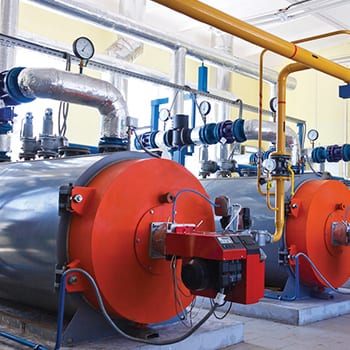
Water boiler maintenance is important to ensure that it operates safely and efficiently. A water boiler is a heating appliance that produces hot water for domestic or commercial use. Whether you’re using it in a hospital, school, or industrial facility, regular maintenance ensures optimal performance and prevents costly breakdowns.
Check the water levels in the boiler regularly to make sure that they are at the correct level. Low water levels can damage the boiler, while high water levels can cause flooding. Always refer to the manufacturer’s guidelines to determine the ideal operating range.
The boiler should be cleaned regularly to remove sediment and scale buildup. This can be done by draining the boiler and scrubbing the inside with a mild detergent. Scale and mineral buildup can reduce heating efficiency and lead to long-term damage.
The anode rod is a sacrificial metal rod that helps to protect the boiler from corrosion. It should be replaced every few years, depending on water quality and usage. A worn-out anode rod can lead to tank failure and internal corrosion.
The safety valves are designed to release excess pressure from the boiler. They should be tested regularly to make sure that they are working properly. A malfunctioning safety valve is a serious hazard and can result in dangerous overpressure conditions.
The flue is the pipe that carries the exhaust gases from the boiler to the outside. It should be inspected regularly for cracks or blockages. Proper ventilation is essential for safe boiler operation and preventing carbon monoxide buildup.
Use a water softener to reduce the amount of scale buildup in the boiler, especially in areas with hard water.
Flush the boiler regularly to remove sediment and other contaminants that can accumulate over time.
Keep the boiler area clean and free of debris to allow proper airflow and reduce fire hazards.
Inspect the boiler for leaks regularly, including around pipe joints and the tank base. Even small leaks can be signs of larger problems.
In addition to these tasks, it is also important to have your water boiler serviced by a qualified technician at least once a year. This will help to identify any potential problems and prevent them from becoming serious. A licensed professional can also test combustion efficiency, check control systems, and verify proper gas or electrical connections.
Routine professional maintenance not only extends the life of your boiler—it also ensures compliance with local safety regulations and maximizes energy efficiency.
Contact ChemREADY today to schedule a call with one of our water boiler experts. Our team can help you implement a maintenance plan that keeps your system safe, efficient, and built to last.
Contact ChemREADY today to schedule a call with one of our experts.
Ben Frieders is the Business Development and Marketing Manager at ChemREADY, an industrial water treatment company, where he focuses on driving growth through strategic marketing, business development, and acquisitions. A former U.S. Navy Chief Petty Officer with a background in nuclear operations, Ben brings a unique blend of technical expertise and leadership to the water treatment industry. Certified in ASSE 12080 Legionella Water Safety and Management, he is a recognized expert in water quality standards, regulatory compliance, and Legionella risk management. Passionate about scaling businesses and optimizing systems, Ben combines data-driven strategies with a hands-on approach to help organizations achieve sustainable growth.